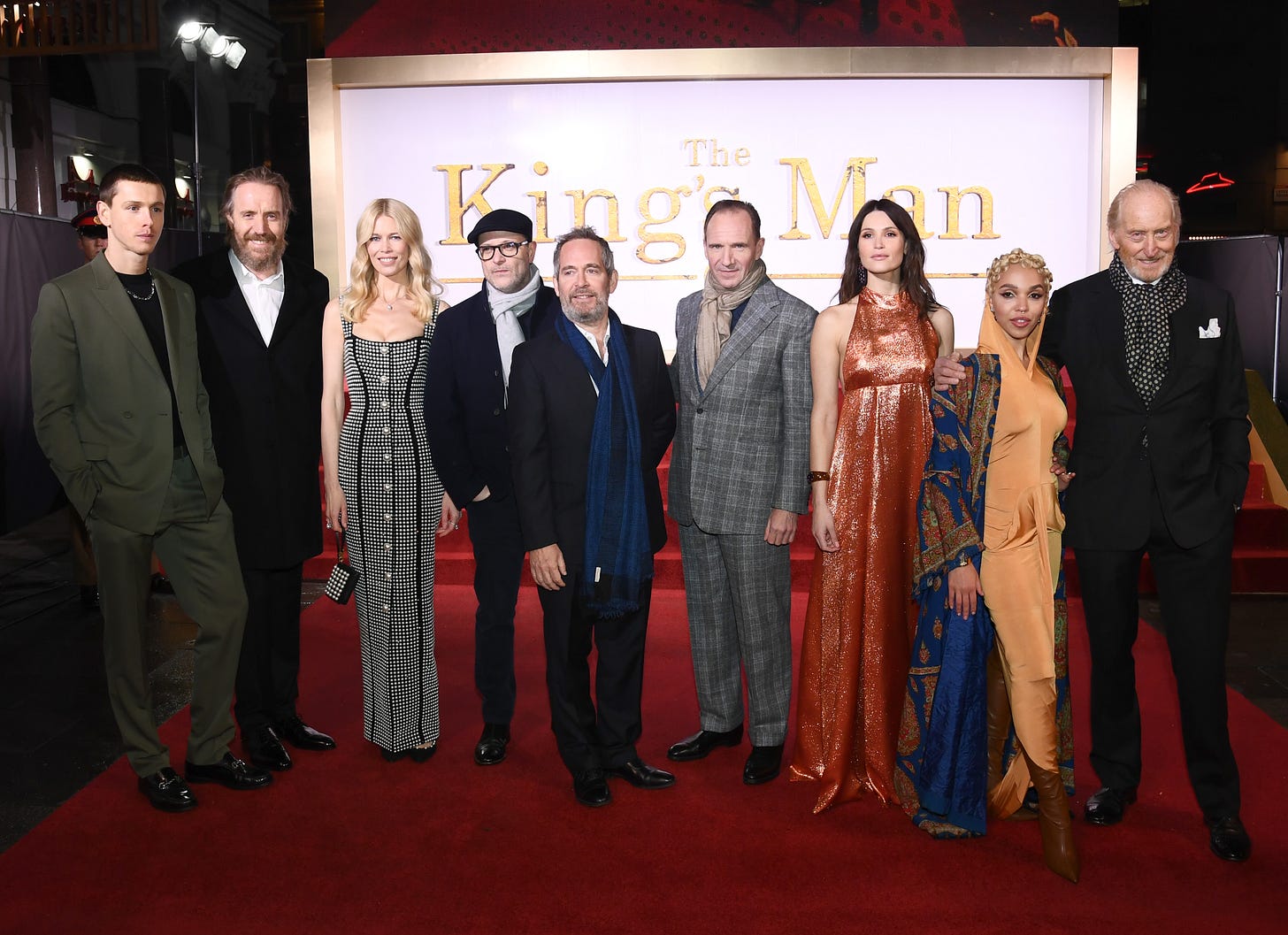
I had no intention of seeing The King’s Man, the latest movie in the Kingsman Secret Service franchise. I’ve seen bits of the earlier movies and didn’t enjoy them. But then a clip started circulating on social media which caught my eye. It’s from the teaser scene embedded in the credits:
In this scene, Vladimir Lenin and Adolf Hitler are shown as partners and underlings in a conspiracy led by Erik Jan Hanussen, a real Austrian Jew who lived in the early 20th century. The idea that Lenin and Hitler were puppets of a Jewish mastermind struck me as wildly antisemitic, a variation of familiar conspiracy theories popular among fascists.
I wanted to understand if the movie was as bad as the clip was. To share in the misery of finding out, I watched it with my partner Robin Ganev (who teaches British and Russian history, which is important in the movie). I also inflicted the movie on Doug Bell.
We had a stimulating conversation about the film which took up the history of espionage fiction, John Buchan (the early 20th century author of extremely racist and antisemitic spy fiction), Alfred Hitchcock, the CIA’s financing of literary journals, James Bond, and the ideal of aristocratic government.
During the podcast I quoted from Gertrude Himmelfarb appalling apologia for John Buchan. It can be found in her book Victorian Minds (1968). Here are two passages from Himmelfarb that I single out as particularly obtuse:
The same observations may be made of Buchan's alleged anti-Semitism. What some have condemned as insensitivity or condescension may also be taken as a forthright expression of opinion—or not so much opinion, because that is to dignify it as a conscious judgment, but rather impression or experience. One cannot reasonably object to references to Jewish rag dealers and pawnbrokers, Jewish Communists and financiers, when these were in fact conspicuous both as individuals and as types in an otherwise ethnically homogeneous society—unless one is prepared to impose a decree of silence on the entire subject of Jews. Nor is it reasonable to take offense at the patently fairy-tale account of an international conspiracy devised by Jewish anarchists and Jewish financiers for different and ingenious reasons, and led by a "little white-faced Jew in a bath-chair with an eye like a rattlesnake" who is avenging himself for centuries of persecution.
***
Men were normally anti-Semitic, unless by some quirk of temperament or ideology they happened to be philo-Semitic. So long as the world itself was normal, this was of no great consequence. It was only later, when social impediments became fatal disabilities, when anti-Semitism ceased to be the prerogative of English gentlemen and became the business of politicians and demagogues, that sensitive men were shamed into silence. It was Hitler, attaching such abnormal significance to filiation and physiognomy, who put an end to the casual, innocent anti- Semitism of the clubman.
As mentioned in the podcast, John Buchan has recently been championed by the alt-right. The journal that is serializing Buchan’s The Thirty-Nine Steps is Man’s World. I won’t link to it as it’s singularly unwholesome.
More Movies
Previous episodes of the podcast have covered Macbeth, Being the Ricardos, and The French Dispatch.
(Podcast produced by Julia Elinor Peterson; post edited by Emily M. Keeler)
Share and Subscribe
If you enjoyed this podcast, please share:
Or subscribe:














Share this post